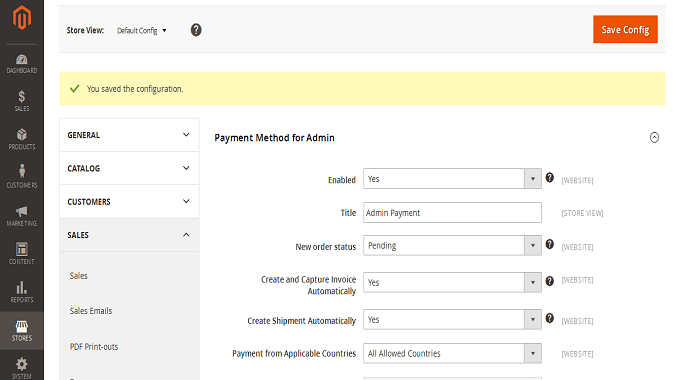While Magento 2 was launched in November 2015, several online retailers using Magento 1 are still confused about whether they should move to the latest version. The original Magento 1 platform will be officially supported until November 2018; however, no additional features would be added. This means that if you’re sticking with Magento 1, you’ll surely be needed to migrate to the new version at some point in the future.
But a major problem for most of the online stores is the fact that Magento 1 and Magento 2 are very different. You cannot just move over to Magento 2 from the original version. All the custom work done on your website needs to be re-done when you move to the latest release. You’ll need to hire Magento 2 developers to do this job for you.
Even though the custom work done to the store needs to be repeated with Magento 2, the majority of the stores have already or are in the process of migrating to the new version. Why? Because as compared to Magento 1, the new version offers a host of benefits that could make a significant difference in the long run.
Let us have a Look at some of the Most Important Benefits of Migrating to Magento 2
Let’s Discuss Each Point in Detail:
1) Faster Load Time
The original version of Magento 1, which is a free version, does not support full-page caching and cannot handle a large number of transactions in a short duration. Even the number of page views it can handle in an hour is only 200,000. On the other hand, the new version – Magento 2 can handle 10 million page views in an hour.
Moreover, Magento 2 requires Mysql 5.6 which is exclusively created to benefit from the advancements of the Mysql database system to enable faster processing of queries, caching, as well as, reindexing, a process with the help of which Magento ensures that the product data, URLs, and inventory is updated once the attributes, products or other parts of the catalog are updated.
The re-indexing mechanism is more efficient in Magento 2 and will have a lower impact on the overall performance of the online store. Apart from Mysql 5.6, the new version of Magento also needs an updated version of PHP to enhance the caching process and improve the load times.
As compared to Magento 1, Magento 2 is more powerful and also provides you the flexibility of working with database systems like Postgress, a system preferred by a lot of eCommerce website developers over Mysql.
2) Improved Admin Interface

While Magento 1 offers a wide range of tools with the help of which website owners can customize their store, a large number of people find the admin interface of the original version confusing. Especially, if you are using it for the first time, you can find it intimidating. Moreover, it is not even built for mobile. With Magento 2, the admin user interface has been significantly improved.
It is user-friendly and highly responsive, making it easier for users to reach where they want without getting overwhelmed with multiple options. More importantly, even the interface for product pages is much easier as you no longer need to click multiple tabs to create a product which was a major problem with Magento 1. Be it adding videos from YouTube or Vimeo, or images to the product, everything can now be done easily on Magento 2 as you now get default options for the same.
Also, while Magento 1 supports a single admin manipulating the product data at once, there are added safeguards with Magento 2 with the help of which multiple administrators can work on the website simultaneously. This makes it easier for the users to keep their products updated and make the team more efficient. This feature can be highly beneficial for larger stores with several products that receive heavy traffic.
3) Improvements to Customer Experience
Even the customer experience has been significantly improved with Magento 2 to reduce the “pain points” responsible for customers leaving their carts abandoned. With the help of these improvements, shopping is now easier and faster for customers. Some of the most important improvements include-
- Simplified and smoother checkout process. It is very important for the checkout to be as simple as possible to keep the conversion rates high and get more sales from modern customers who have a very low tolerance for any kind of complications when they are shopping.
- Simplified registration process which the customers can complete after they have ordered a product and not before.
- The checkout process now has details of the order at every step of the process to ensure that the customers are at ease.
- Even the PayPal integration has been improved with Magento 2. There is now no need to enter long details like billing addresses as these things are already handled by PayPal.
- The final order summary also includes photos of the order. This helps in minimizing ordering errors to help reduce returns and improve the confidence of the buyers which leads to better conversion rates.
- The fewer confusing forms and choices, like account registration, make it easier for the shoppers to complete the checkout process faster.
4) Better Mobile Shopping
Almost 50% of the transactions that happen online are now done through mobile devices. Many of the enhancements mentioned above significantly improve the mobile user experience. As browsing is slower and more complicated on mobile devices.
shoppers heavily rely on the search option. With Magento 2, the search has been considerably improved to make it easier for shoppers to find the product they are looking for.
Combined with improved speed and mobile-friendly checkout, the conversion rate through mobile can be significantly improved with Magento 2. A reputed Magento 2 upgrade service provider can help you take advantage of this improvement which can help you improve your sales through mobile devices.
With Google already mentioning that they now measure the performance of a website on mobile before checking its performance on the desktop, you’ll also benefit from search results with the help of Magento 2 and its mobile improvements.
5) Improved Technical Architecture and New Features
The technical architecture of Magento 2 is far better than that of Magento 1. The file structure has been simplified for themes, extensions, and several other uses. With Magento 1, you were required to have the code of a theme or extension at many different places in the file structure. With the new release, there is now a single folder with all the codes required for extensions. This makes it very easy for a user to modify or remove any extensions.
Moreover, there are options for additional technologies like Jquery and composer. Also, with the help of an improved architecture, even the upgrade process has been made simpler. For instance, moving from Magento 2.0 to 2.1 is simpler than moving from Magento 1.7 to 1.8. In other words, it’d be easier to upgrade and maintain Magento 2 as compared to Magento 1.
Newer features like color swatches and API admin panel are regularly introduced in Magento 2. The API panels can be easily checked in the admin panel, making Magento 2 integration with API functionality easier than before. Sticking with Magento 1 would mean that you won’t be able to access these core features that can significantly benefit your online store.
6) Better Testing Capabilities
With Magento 1, regressive testing to find bugs on the website was a very difficult task. It is very important for every online store to work with a customized and complex system full of modules and extensions to minimize risks as much as possible. This is especially true for stores that receive a lot of traffic.
This makes testing very important and with Magento 2, this has been made simpler too. You can now easily check if any new modules or features would conflict with your existing system. There is now a built-in framework for testing which can be used to run automated tests on any online store irrespective of its size.
7) A Community Moving Ahead

The new Magento community is moving ahead with the new version of Magento. There is now no use for the extension makers and developers to still invest in Magento 1 as it is set to die eventually. As the community is moving forward with Magento 2, every day spent on the original version would fall in its worth with time.
With the e-commerce industry, including top players like Amazon, Walmart, and even mid-tier players constantly innovating and moving forward, you’ll definitely be left behind if you continue using Magento 1. With the security patches only available until November 2018, the original version of Magento will also become a security risk in the future.
Conclusion
All the online stores using Magento 1 would benefit from the new functionality and performance improvements when they switch to Magento 2 Community or Enterprise edition. While the migration process can be difficult, hiring a professional Magento 2 development agency can make it easier and time-efficient.
In the coming years, the changing customer trends would make migration unavoidable. With its responsive build, streamlined checkout process, new features, and better efficiency, Magento 2 is the way ahead for online stores. As the original version would not be updated for a very long time, any investment made in it would only be short-lived.
As there are several major differences between the two platforms, the migration would need a serious commitment from the planning to the implementation stage. A professional upgrade service is the best bet for store owners who want to ensure that the process is smooth and effective.

























